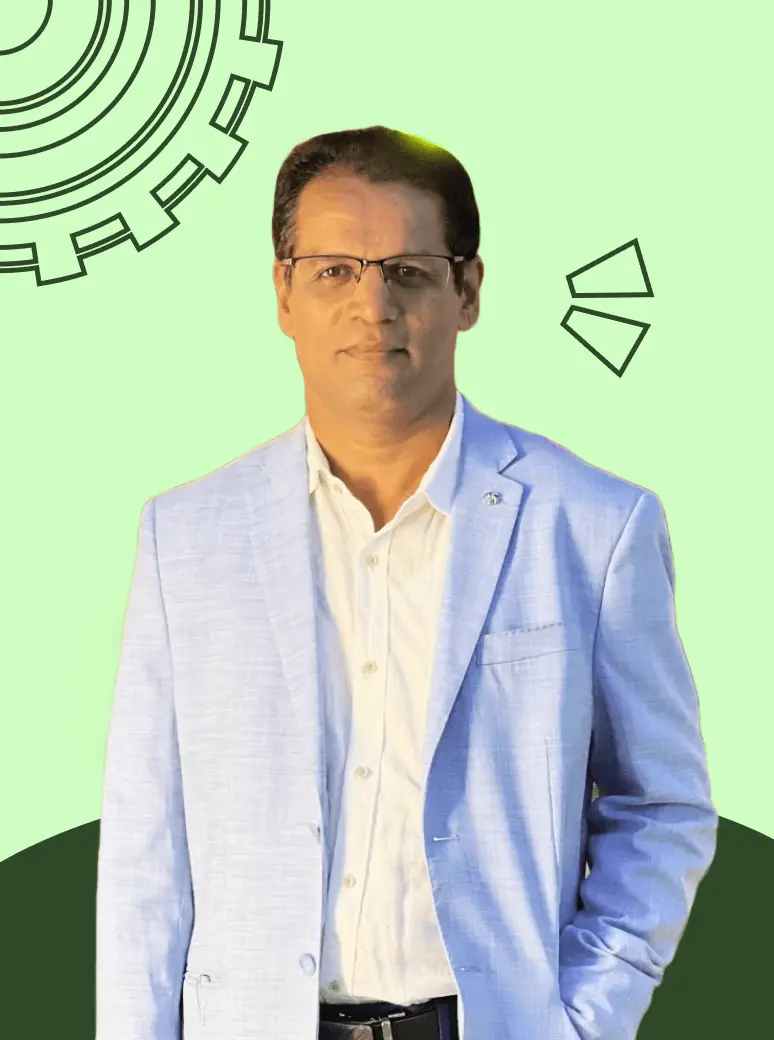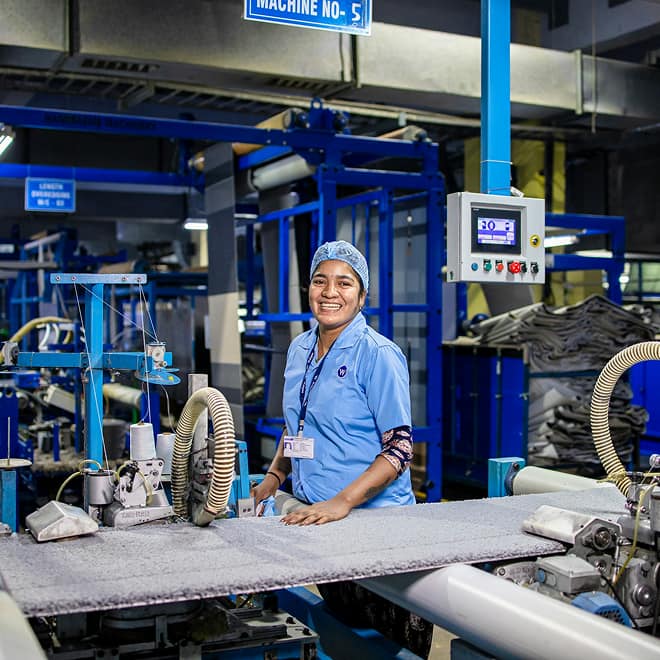From ₹257 to ₹100 Crore: Ronald D'Souza's Journey of Lighting Up India's Manufacturing Story

In 2010, Ronald Sylvan D'Souza had just ₹257 in his bank account. He had sold his house in Bangalore, packed up his life, and stepped into a tiny 10x10 room with two employees and an idea that most people would dismiss as too small, too boring, or too risky: a lighting manufacturing business.
From ₹257 to ₹100 Crore: Ronald D'Souza's Journey of Lighting Up India's Manufacturing Story
In 2010, Ronald Sylvan D'Souza had just ₹257 in his bank account. He had sold his house in Bangalore, packed up his life, and stepped into a tiny 10x10 room with two employees and an idea that most people would dismiss as too small, too boring, or too risky: a lighting manufacturing business.
Today, his company, Lexa Lighting Technologies Pvt. Ltd., is inching towards ₹100 crore in recurring revenue, powering television studios, monuments, and auditoriums across 20+ countries — from Canada to Kenya. His journey is proof that some of the most inspiring entrepreneurial stories aren't born in glamorous tech parks or venture capital-backed startups, but in factories, workshops, and gritty decisions that test the limits of resilience.
This is the story of how Ronald went from a ₹5,500-a-month job to building one of India's most respected names in lighting — and why young entrepreneurs should look beyond the "sexy" industries to discover where real impact lies.
The Humble Beginnings: Lessons from Toyota
Ronald's career started in 1999 at Toyota Kirloskar, one of India's most disciplined manufacturing setups. Getting in wasn't easy. Out of 55 candidates competing for just two positions, Ronald ranked first after a grueling seven-round interview process. His starting salary? Just ₹5,500 a month.
For the next 10 years, he immersed himself in everything Toyota had to offer — from local parts management to reporting directly to Japanese leadership, from production planning in India to coordinating multi-country operations in Thailand.
He rose quickly, becoming one of the fastest-promoted employees among a workforce of 4,600. But more than the promotions or paychecks, Toyota gave him something far more valuable: a mindset shaped by Japanese management principles.
At Toyota, Ronald saw how challenges were never treated as roadblocks, but as opportunities to build resilience. During the 2000–2003 slowdown, instead of laying off employees, Toyota encouraged workers to grow vegetables in unused factory plots. For Ronald, that lesson stuck: productivity is a mindset, not a function of circumstances.
The Leap of Faith: Turning Around Canara Lighting
After a decade at Toyota, Ronald made a decision that raised eyebrows. He left the comfort of a multinational to join Canara Lighting, a small, struggling company in Mangalore.
The move meant a 50% salary cut and shifting from Bangalore's urban comforts to a smaller city. Most people would have seen it as a step backward. Ronald saw it as a challenge.
In just six years, he turned Canara Lighting around — steering it from losses to ₹40 crore revenue. He was one of the first in India to introduce high-end LED lighting into the market in 2010, long before it became mainstream.
But just as the company was thriving, internal politics and management roadblocks left him disillusioned. "If contributors aren't respected, growth becomes meaningless," he reflected later. So he walked away — a bold move after years of building.
Starting Over: ₹257 and a 10x10 Room
The year was 2010. Ronald had sold his house in Bangalore and was left with just ₹257 in his bank account. But he also had something more important: a 60-page business plan and a belief that he could build something enduring.
With two partners from Mumbai and Calcutta, he set up Lexa Lighting Technologies in a 10x10 room with just two employees. The odds were stacked against him. No funding safety net. No wealthy family connections. Only grit.
And yet, the results were nothing short of staggering.
- Year 1: ₹13.5 crore revenue.
- Year 2: ₹19 crore and a factory of his own (financed by ₹6–7 crore from HDFC).
- COVID Year: While most businesses crumbled, Lexa registered only a 10% decline, clocking ₹17 crore.
- Recent Growth: ₹28 → ₹72 → ₹65 → ₹67 crore in consecutive years.
- Target 2025: ₹100 crore recurring revenue.
From zero to global projects in Canada, Kenya, Tanzania, and Nigeria — all in just over a decade.
Building with Japanese Principles
Ronald credits much of Lexa's success to the principles he absorbed at Toyota.
Turning negativity into action: When he faced personal setbacks, he channeled frustration into productive work. Just as Toyota once grew vegetables during a slowdown, Ronald dug farm plots and grew vegetables after a job loss — a symbolic reminder that resilience is built in how we respond to setbacks.
Teamwork over competition: He often says, "Virat Kohli and Sachin were Dhoni's strength, not competitors." His leadership style is about collective strength rather than individual comparison. Proof? When he left Canara Lighting, 15 employees resigned in solidarity, choosing loyalty to his leadership over security.
Systematic planning and waste elimination: From production to client servicing, his approach has always been structured. Every rupee, every resource had to justify its place. That discipline, he insists, is what helped Lexa survive tough years like COVID.
Beyond Lights: Technology and the Future
Ronald's story is not just about the past — it's also about how he's preparing for the future.
Lexa has begun adopting AI tools for operational efficiency — from generating presentations and design drafts to managing correspondence. While AI's role in manufacturing lighting remains limited due to its creative, project-specific demands, Ronald sees it as a supportive tool rather than a replacement.
He has also witnessed India's entire manufacturing evolution — from an era with no televisions in homes to today's smart homes powered by IoT-enabled lighting. Having pioneered LED adoption in 2010, he is now gearing up for the next frontier: laser and plasma lighting technologies.
For Ronald, innovation isn't a buzzword. It's survival.
Lessons for Young Entrepreneurs
While Ronald's story is filled with achievements, he is quick to remind the next generation that the road is neither quick nor easy. His advice is simple, but profound:
- Don't chase shortcuts. Success is built on years of creating value. "Make yourself an asset internally before dreaming externally."
- Diversify wisely. He recommends building 6–7 verticals instead of relying on one.
- Money follows value, not the other way around. If you solve problems and create real impact, the financial rewards will come.
- Work before you leap. He urges graduates to spend 5–10 years in multinationals, learning accounts, HR, unions, R&D, and marketing — not just manufacturing. A company is a sum of all its parts, not just its production floor.
- Education isn't enough. He believes India's education system is too theoretical. Real employability comes from hands-on exposure, curiosity, and grit.
Why His Story Matters
India often celebrates its tech entrepreneurs — the unicorn founders, the app creators, the ones who attract global headlines. And while they deserve recognition, stories like Ronald's are equally important.
Manufacturing may not trend on Twitter. It may not be "cool" to say you make lights instead of apps. But the truth is, it is manufacturing entrepreneurs like Ronald who form the backbone of the economy — creating jobs, driving exports, and quietly shaping industries that touch millions of lives.
For young entrepreneurs reading this, Ronald's story is more than just inspiration. It's a reminder: impact isn't always flashy. Sometimes it's found in the unglamorous, in the industries that most overlook.
Closing Note
From a ₹5,500 job at Toyota to building a ₹100 crore company, Ronald D'Souza's journey is a testament to grit, vision, and the courage to start over — even when the odds seem impossible.
His story is proof that the next big Indian success story might not come from Silicon Valley-inspired tech startups, but from small factories, dusty workshops, and determined founders who believe that boring industries can change the world.
For anyone who has ever felt that their dreams are too small, or their industry too dull, Ronald's journey offers a shining example: when passion meets perseverance, even a single light can illuminate the world.
Recent Stories

At the Intersection of Engineering, Manufacturing, and India's growing HVAC/Built Environment sector: Nisha Anil Nair

Made in India, for the World: Pritesh Shah's Journey of Innovation, Resilience, and Purpose
